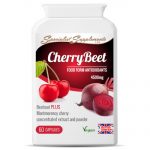Joints and Flexibility
Some people may think that joints and flexibility are important only to athletes and gymnasts, and that’s why so many have neglected this particular aspect of their health. But the loss of flexibility can lead to all sorts of problems throughout your body.
Why Are Joints And Flexibility Important?
If you’re not flexible enough, your range of motion becomes much more limited. Eventually even everyday activities such as reaching for something up in your cupboard may become too difficult. Exercising, which is a necessary component of health maintenance, can also become problematic due to lack of flexibility.
But if you improve or even just maintain your flexibility with regular stretching, you can spare yourself from a lot of difficulty. Flexibility can prevent or alleviate back pain. It minimizes injuries to your tendons, ligaments, and muscles. It improves blood circulation, so oxygen and nutrients can move throughout your body properly. You can also enjoy better posture and you will feel less stressed.
Potential Joint Problems
The health of your joints is certainly a crucial factor that determines the level of your flexibility. Unfortunately, lots of things can go wrong with your joints, especially as you get older. Arthritis is perhaps the most common and most well-known, but there are other potential problems as well:
- Inflammatory diseases. Arthritis is often the catch-all term for inflammatory joint disease. But there are different conditions in this category. These include ankylosis, synovitis, arthralgia, spondylitis, and the more familiar rheumatism.
- Bursitis. This is the inflammation of a lubricating sac over a joint or between the tendons and muscles.
- Infectious arthritis. Your joints may be infected by some type of microorganism, such as bacteria, viruses, fungi, and in some cases even animal parasites.
- Rheumatoid arthritis. This is similar to infectious joint disease, except there seems to be no isolated cause. This problem can occur when you’re in your 40s or 50s.
Preventing and Alleviating Joint Pain with Supplements
Joint pain is a very widespread health problem. While you can take drugs to alleviate joint pain, this is not really a recommended long term treatment. But supplements can help relieve joint pain and also prevent it from recurring.
Some of the best supplements for this purpose are:
- Glucosamine. This fatty acid can help rebuild bone and prevent inflammation of your joints and adjoin muscles. It also maintains your cartilage from wear and tear.
- Chondroitin Sulfate. This is used with glucosamine to prevent joint pain and to build up the cartilage. Together, the two can make your joints stronger.
- SAMe. This is the shorthand term for S-adenosyl-methionine. It’s a coenzyme that’s mostly used for treating arthritis. It helps repair the joints and reduces the pain and inflammation. It can also reduce fatigue, muscle pain, and muscle stiffness.
- Omega-3 Fatty Acids. This is a popular supplement for the joints of the knees, as it can strengthen tendons and reduce inflammation. These fatty acids can help against the wear and tear of the joints.
There are other supplements that can help with your joints. Take a look at the product descriptions of the supplements we offer on this website and pick one that suits your needs.
Showing all 5 results
-

Antarctic Krill Oil Capsules
Sale!£16.99£15.99 Add to basket -

Cherrybeet – Cherry Beetroot tablets
Sale!£13.99£12.99 Add to basket -

Happy-Flex joint support supplements
Sale!£15.96£13.99 Add to basket -

L-Glutamine powder
£11.99 Add to basket -

Natural vitamin c supplement capsules
£11.99 Add to basket
Showing all 5 results




